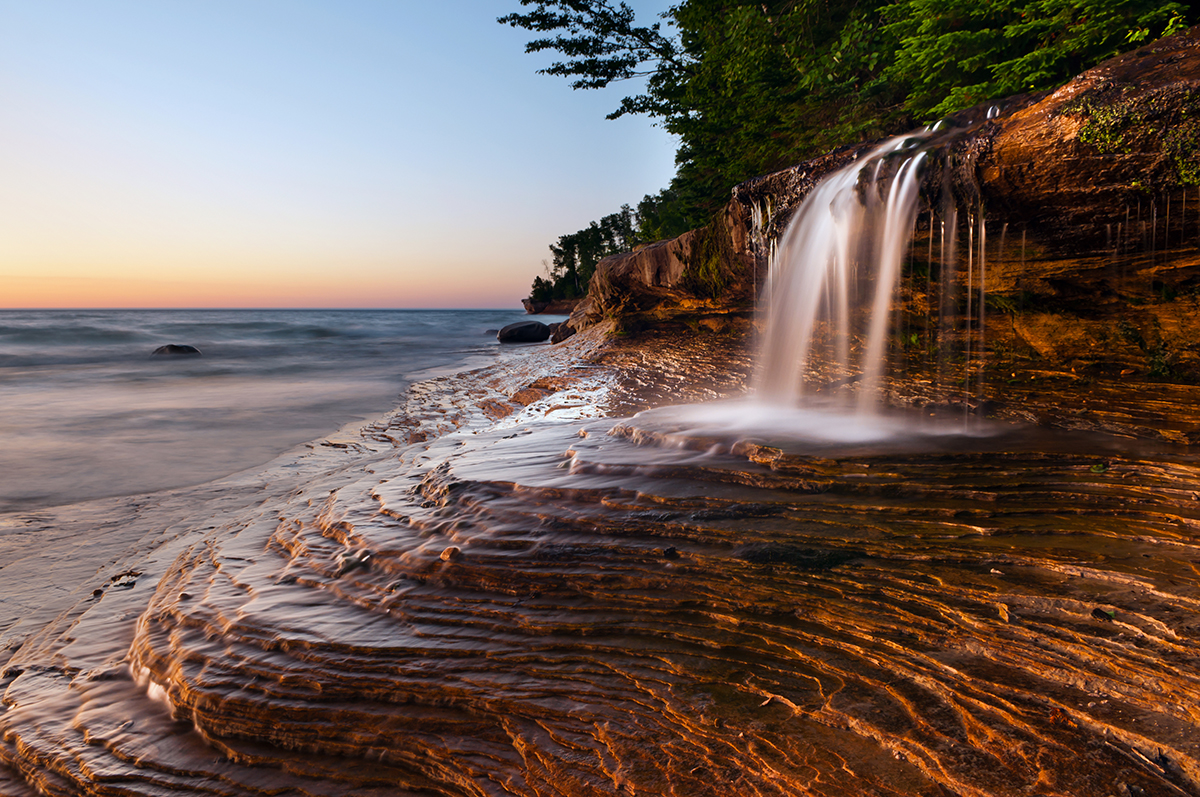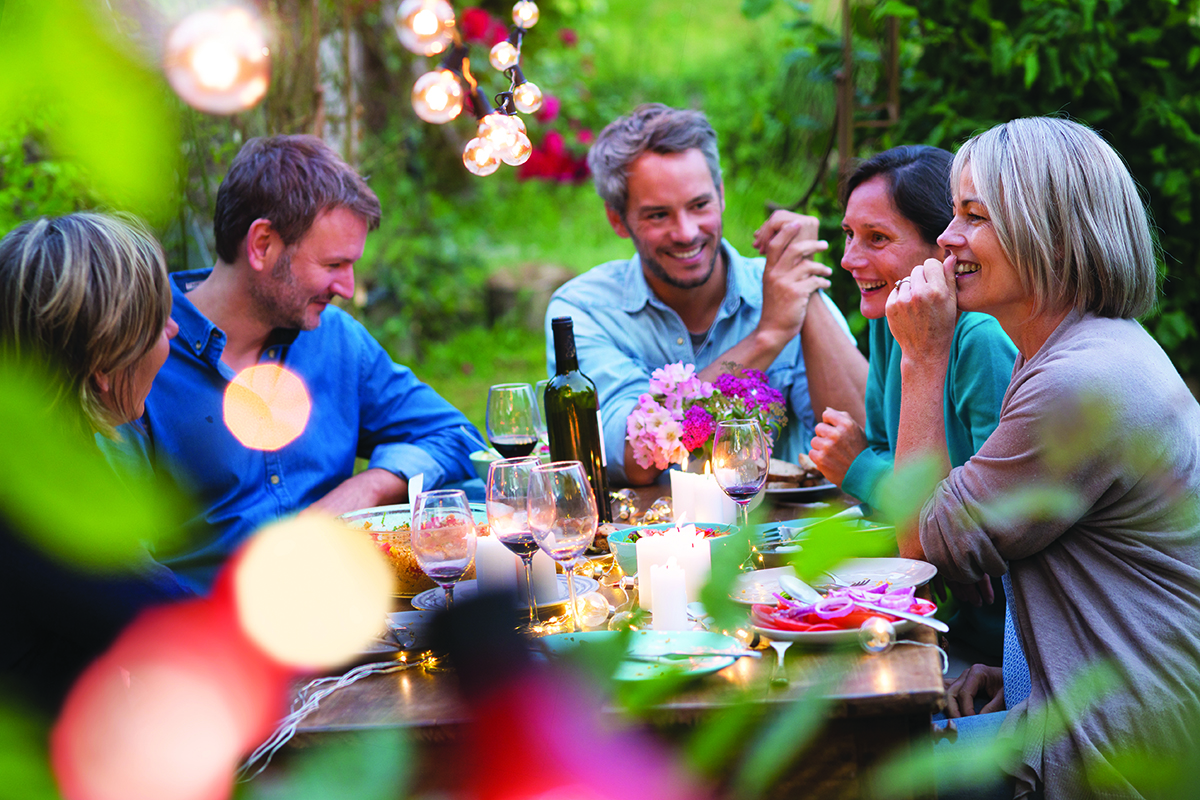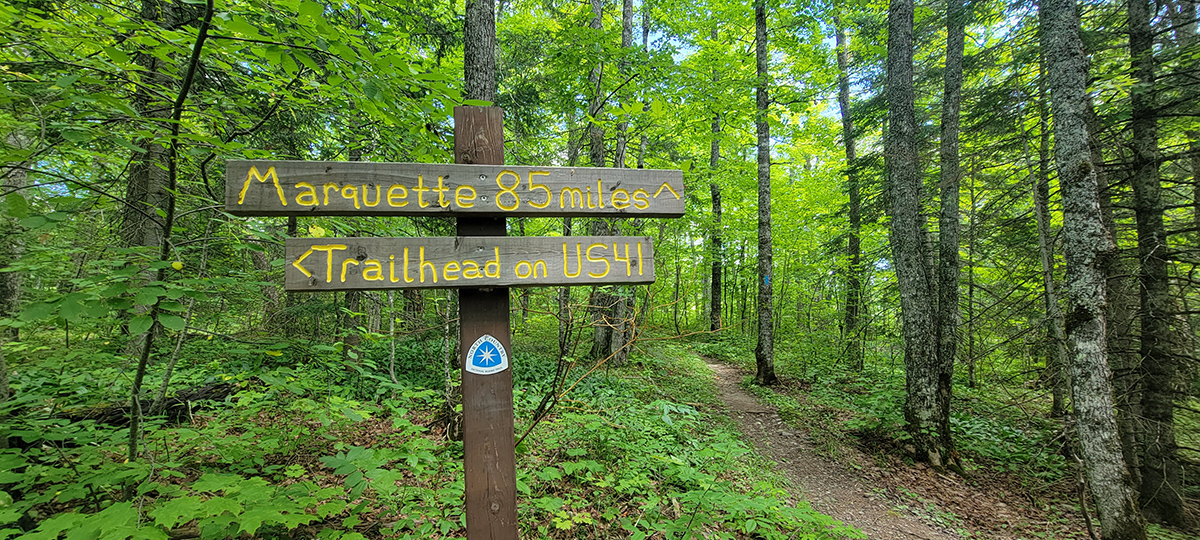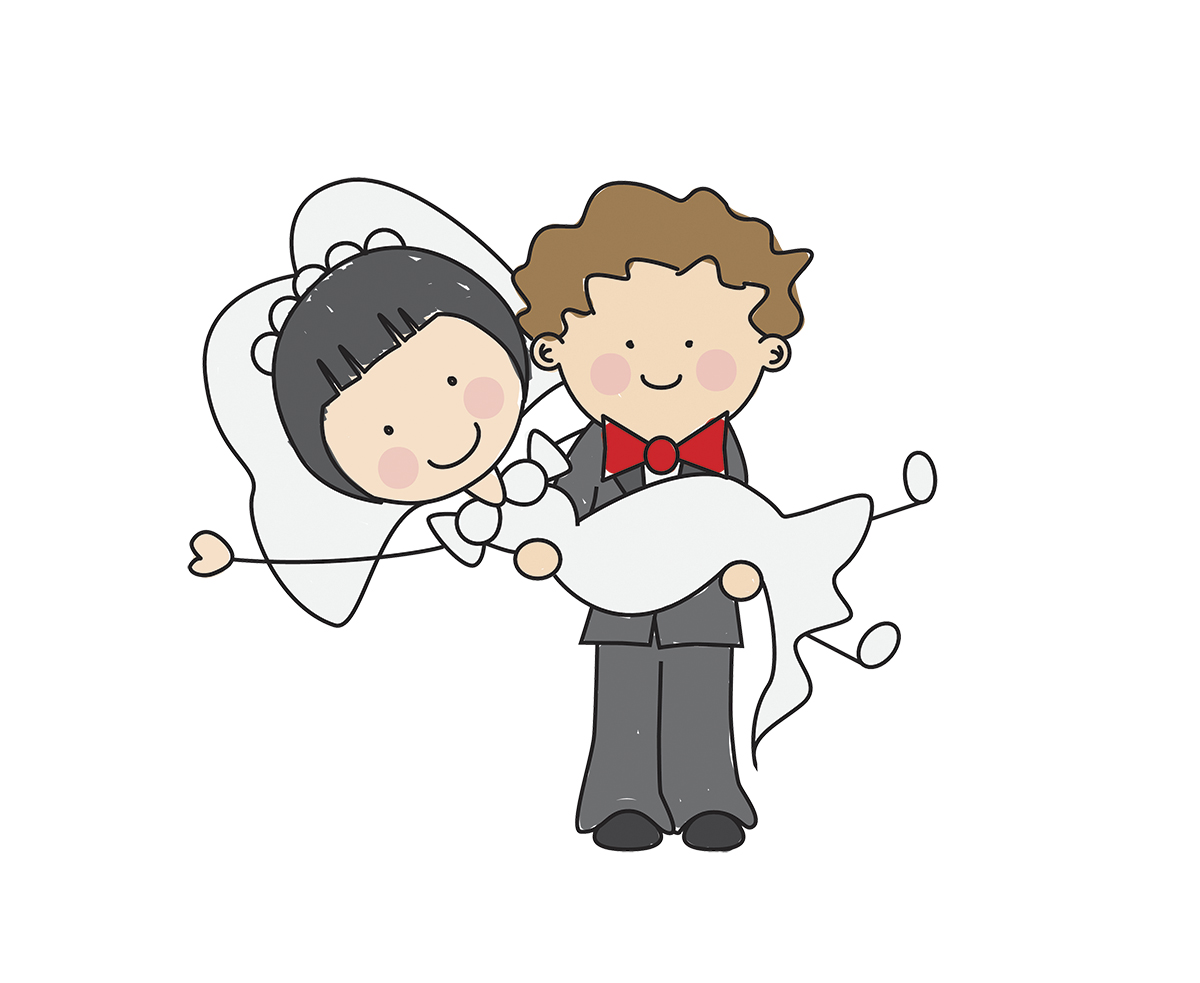WRITER | SARAH SPOHN
Camping in a Winter Wonderland
When’s the last time you used your tent? This past summer? Or maybe it was even a few seasons ago. Did you know Michigan has great spots for outdoor camping, even in the winter? In fact, some campers prefer the colder temperatures enjoying warm fires and trails freshly covered with snow without the hassle of summer humidity and mosquitoes. If you’ve never camped outside in Michigan’s winter, here is a helpful guide, complete with a few tips and location recommendations.
Guide to Clothing and Accessories
Wear layers – this one’s a given. For starters, look for a good base layer, something that’s moisture-wicking. Add an insulating layer, wool sweater, fleece or down jacket. For the top layer, look for a winter jacket or something with weatherproof lining to protect you from the elements. When it comes to your footwear, waterproof boots or even snowshoes are your best bet. Also, pack extra pairs of socks. Wet socks can lead to frozen feet, and nothing good comes from frozen toes. Don’t forget sunscreen and sunglasses or goggles – snow can be blinding and the sun and wind can burn you, too. Hand and toe warmers are inexpensive and can be a lifesaver for your limbs, too. Headlights and lamps are also handy for late-night trail excursions or bathroom breaks.
Guide to Gear
Sleeping bags have come a long way since your elementary school sleepover days. Thanks to technology, you can buy a cold-weather bag or bag liner that will help you stay warm. Bags rated for zero-degree or lower temperatures will keep you nice and cozy, no matter how frightful the weather outside is. Look for those made with down feathers and bags with draft collars and hoods to keep the warmth in. Picking the right sleeping bag can be overwhelming, but be sure to look at R-value, the system of measuring insulation. R-values range from 1 to 8; the higher the number, the better insulation it provides.
Sleeping pads are another good option to help keep you off the frozen ground. Look for an insulated inflatable sleeping pad – two stacked on top of each other provides even better insulation. A four-season tent, or one that doesn’t have mesh windows so snow won’t reach the interior, is a must in cold and snowy conditions. Choosing a bigger tent can leave you room to safely store your gear like your snowsuits and snowshoes so they aren’t exposed outdoors. Packing a sled and snow shovel can also be helpful in your excursions.
Guide to the Campsite
All campsites are not created equal, especially not in the winter. Choose a location that isn’t windy, and be sure to stay away from tops or bottoms of hills, which create cold air pockets. Flat land is good for your gear and if you can pack the snow around the spot, all the better. This will insulate better than loose snow accumulation does. You can also build a partial snow wall around the tent to help reduce wind.
This next tip might sound strange, but a little bit of ventilation in your tent is important. Breathing can expel hot vapor inside, and the water droplets mixing with the cold fabric can create condensation, which then freezes. Keeping a small vent open in your tent ensures you won’t get trapped in a literal icebox. Use snow stakes instead of regular tent stakes so your tent won’t blow away. Be sure to keep ice axes, picks, ski edges and other sharp objects away so they don’t poke holes in your tent.
Guide to Roughing It
If the elements are too rough, and you’re just not a happy camper, it’s okay to call it a day. You can pitch your tent inside your vehicle, or bundle up inside it to keep warm. Don’t risk your safety or tough it out if it’s not enjoyable. If you need to warm up quickly, hop in your car and turn the heat on for a few minutes.
If tent camping just doesn’t sound like a good time, you may want to consider renting a travel trailer or RV. These provide protection from the elements and still make for memorable moments within nature.
Some items you’ll want to pack in the RV include a shovel and electric space heater or a catalytic heater. These types of heaters can reduce carbon monoxide gas worries, but just in case, make sure your smoke and carbon monoxide detectors are working. Since regular hoses will freeze in sub-zero temperatures, invest in a heated hose. RV plumbing heat tape will also prevent pipes, valves and connections from freezing. Pour RV antifreeze in the toilet tanks to keep the water from freezing.
Insulate your walls, windows and floors. Be sure to keep the snow and ice buildup off your RV. When it melts, it can damage or ruin the roof seams. Stock up on propane so you don’t run out at the coldest, most inconvenient time. Other helpful tools include tire chains and ice scrapers.
When crossing off your packing items list, don’t forget to double-check your RV engine and batteries. Partially charged batteries are quick to be zapped if exposed to cold temperatures. Make sure your tires have good tread for traction in icy conditions.
If this list sounds daunting, leave it to the professionals. Ensure your RV is 100% ready for your cold-weather camping trip by working with an RV dealer who can help you get it ready for winter.
Michigan Winter Camping Destinations
• Warren Dunes State Park (Sawyer): A popular summer destination, with its sand dunes and shorelines proudly on display, this spot also boasts beauty during the winter. Seeing Lake Michigan frozen is a sight like none other, and the terrain allows for great cross-country skiing.
• Pictured Rocks National Lakeshore (Munising): Another go-to spot for summer tourism that shines brightly in cold weather. Although it looks totally different, the lakeshore covered in long icicles and floating ice chunks on the water provides a sparkling, picture-worthy sight.
• Muskegon State Park (Muskegon): If tent camping isn’t your thing, and you don’t have access to an RV, this park features mini cabins and yurts. The Muskegon Winter Sports Complex is close to the park and features ice skating and one of only four luge tracks in the country.
• Other state parks offering winter camping include: Brighton Recreation Area, Fort Custer Recreation Area, Mitchell State Park, North Higgins Lake State Park, Tippy Dam Recreation Area, Waterloo Recreation Area and more. Be sure to make a
- reservation in advance!








